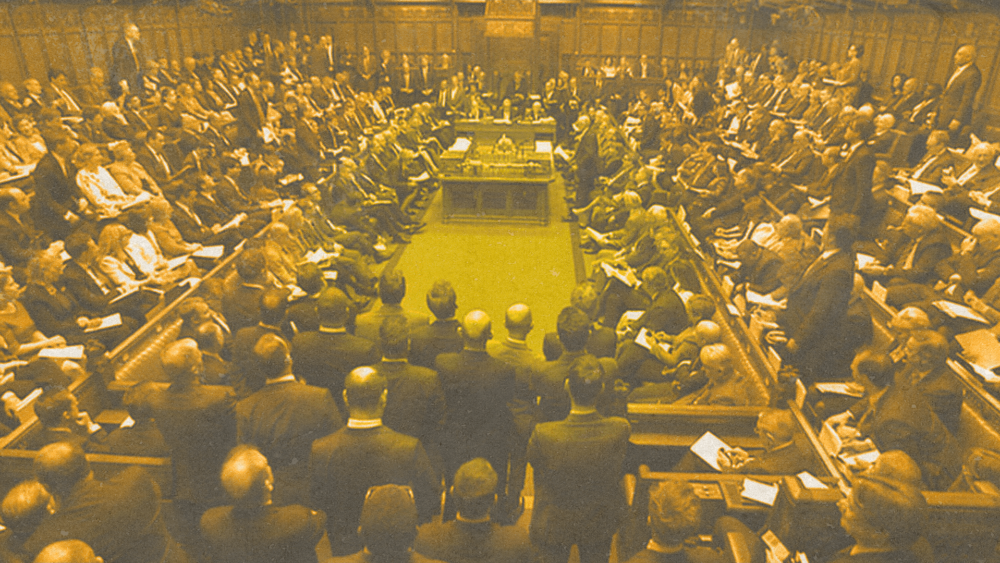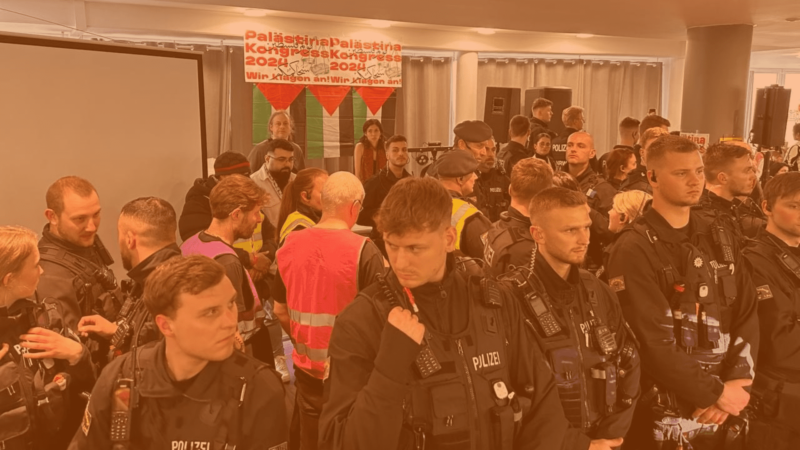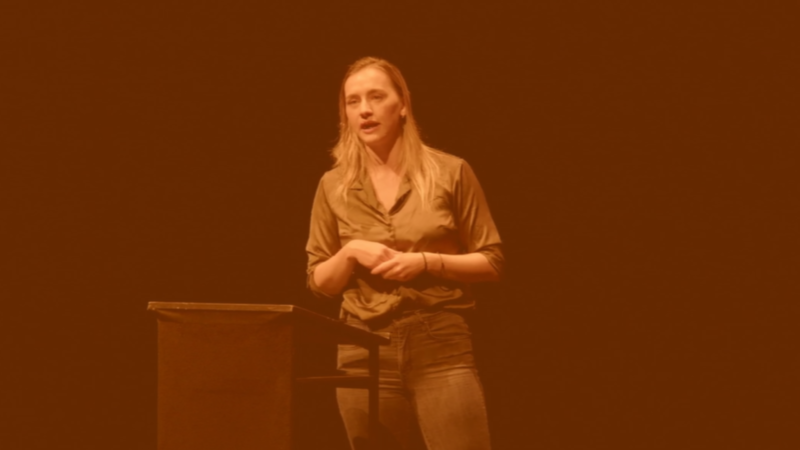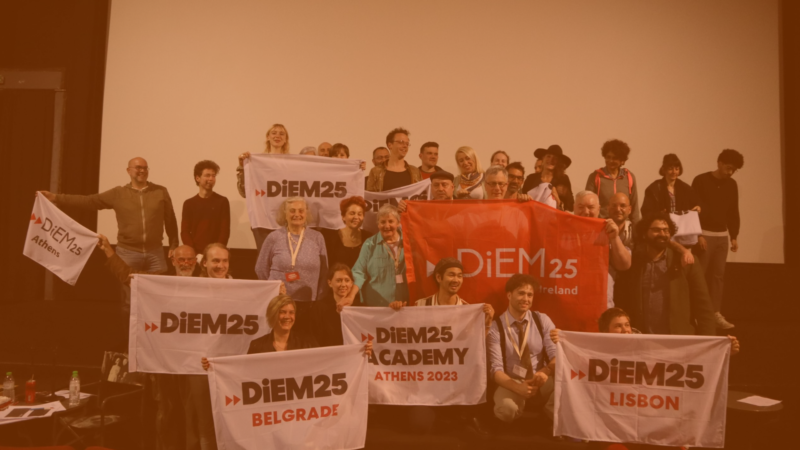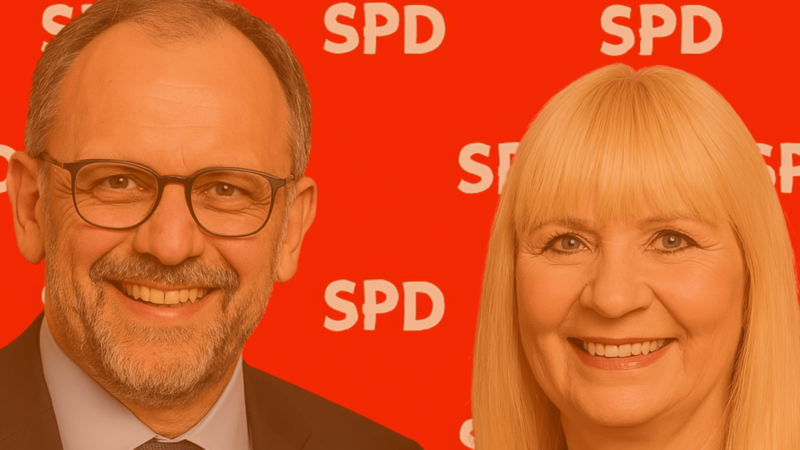If I said that the system is broken, most people in DiEM25 would probably relate to my statement, wherever they came from. Though maybe not the worst, the UK is certainly at an extreme level of brokenness.
To give just two examples: during the Brexit period, the Conservative government used the Henry VIII Clauses to try to bypass parliament. Henry VIII was king between 1509 and 1547 who liked to govern by proclamation. This was an attempt to pass laws on something as important and far reaching as Brexit without democratic debate or scrutiny.
During the same period, then-prime minister Boris Johnson prorogued parliament – that is suspended the House of Commons in order to avoid scrutiny of the Brexit bill. Proroguing was a tactic used by Queen Elizabeth I in 1578 so that parliament couldn’t discuss her love affair with Francis, Duke of Anjou.
Though these two incidents were reversed after legal challenges, it highlights the problems associated with not having a proper written constitution, though the UK has parts of its constitution written in different places it is mainly governed by convention. One of these conventions is that parliament is sovereign. This means that if a party has a majority of one, it could in theory abolish the Scottish or Welsh devolved parliaments or the House of Commons itself. This is not an idle threat; the Conservatives under Margaret Thatcher abolished the Greater London and other Metropolitan Councils because they were too left-wing. In more recent times they changed the voting system for police commissioners from Single Transferable Vote to First Past the Post because they weren’t doing that well and they have brought in the need for Voter ID in the UK general elections to increase the Conservative chance of winning. Even the right-wing Conservative MP Jacob Rees-Mogg described this as an attempt to gerrymander the election results.
This is part of the background of why the UK needs to be working towards a better form of democracy that can be created and supported by citizens themselves and is fit for this century.
Below I will go through the proposals that we came up with through several stages of discussion within DiEM25 and supporters. Though some of the proposals are UK specific, others could be applied to the rest of Europe. I hope they will at least inspire discussion.
Electoral system
We support a transition to a Proportional Representation electoral system for all elections and call for the Labour Party and other progressive parties to commit to this proposal in their manifesto for the next general election. It should also be central to any coalition agreement if there is a hung parliament. Initially, we advocate for the Westminster elections to use the system currently used by the Welsh Senedd and Scottish Parliament. This is because it is a tried and tested method, it is acceptable across the political divide and the easiest to migrate from First Past the Post systems (e.g. New Zealand). Constituency MPs would be elected using the Frst Past the Post system (i.e. the candidate with the greatest number of votes from that constituency is elected). A second vote would elect MPs from a closed list from a region which would act as a proportional top-up using the d’Hondt method.
One of the worst aspects of the current situation is the electoral system (called ‘first past the post’). This enables candidates and parties to gain power with a minority of the votes cast (governments have been formed on 30% of the vote). In a recent police commissioner vote each of the four candidates got 25 percent of the vote. It very much disenfranchises smaller parties such as the Greens who get a lot of votes but which are spread over the country. It also encourages the widespread use of tactical voting which means that there is no way of knowing whether people have voted positively for a candidate or only negatively to keep another candidate out. Since it encourages a two-party duopoly, this in turn means constant infighting for control by different factions within the parties, which is hardly a recipe for a functioning democracy. Though there probably isn’t a perfect system these are the principles behind the three main voting systems. For more information, click here.
First past the post – here the first preference of the majority is elected
Single transferable vote – the highest preference candidate of the majority is elected
Proportional representation – the candidates elected reflect the differing parties and views of the population.
I would say that on a local level Single Transferable Vote is worthwhile for local elections where the candidates are known to the electors or where personal vote ie for a police commissioner, directly elected mayor or president. But where a government or party is up for election then a PR system is a better option.
After careful consideration the proposals we have come up with are an Additional Member System such as exists in New Zealand, Wales or Scotland. This is a bit of a hybrid in that it keeps the first past the post system but has a regional list top-up system which gives it a certain amount of PR. To explain further let’s take the system in Wales.
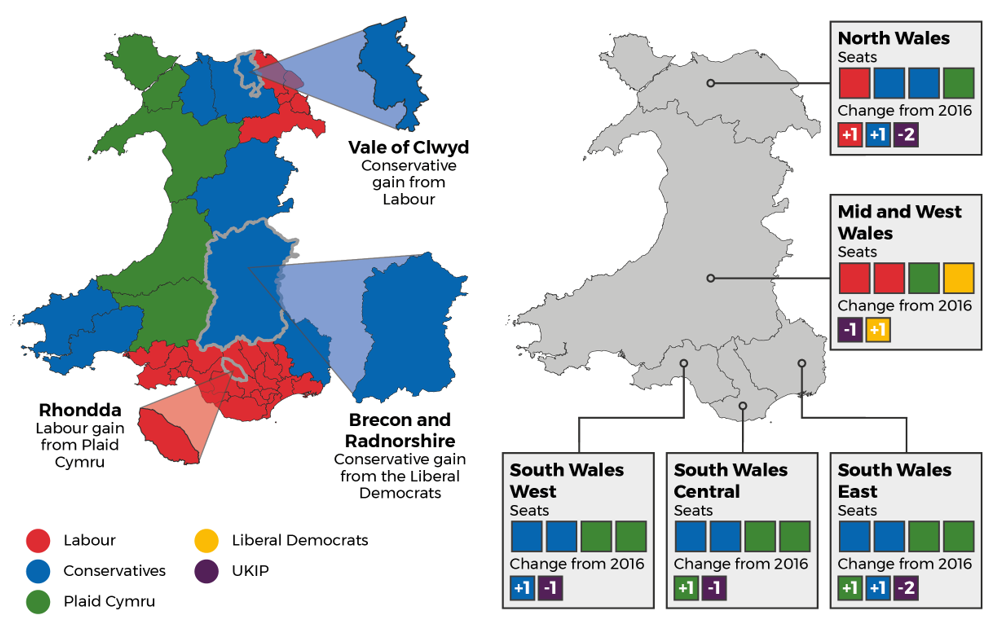
On the left-hand side map you have the normal first past the post system. If this was used alone then you would have a situation where the Labour party would have a constant massive majority because they tend to win in the more populous former industrial areas. However, there would be no voice from more rural areas to the West and to the North. To better reflect the votes cast and the various parts of the country the regional list is applied using the D’Hondt method.
The letter ‘s’ here signifies the number of seats already won (including those won on the FPTP on the left). That means that the votes cast for Labour in South Wales West the s = 6 +1 and so their vote is divided by 7 whereas Plaid Cymru didn’t win anything on the FPTP and so their s=0+1. The outcome therefore is Plaid Cymru and the Conservatives are allocated 2 seats each on the regional list.
There are drawbacks to the system: it isn’t fully proportional, though it is easily made more proportional by either removing the left-hand side FPTP (but you would then lose the local representation) – or by increasing the number of seats on the regional list (the right-hand side map in the image). Another aspect that the regional vote operates on a closed list basis. The voters are given the names of four candidates selected by the party in the order that the party has chosen. What if one of the candidates has offended you but you support the party in general? Well there is nothing much you can do except not vote for the whole list. This is an issue which happened when a Plaid Cymru candidate was embroiled in a Terf/Trans controversy. Now this could be adapted by changing to an open list where the voter selects the list and then ranks the candidates in order of preference.
Why do the proposals suggest this system? Because it is an absolute necessity to move straight to a PR system — otherwise the left will make no headway in the UK. The system in Wales and Scotland is the only one that would be acceptable to the Labour Party and other progressive parties. It is the system that other countries have adopted which initially had FPTP.
Candidates for the constituency vote must be living in the constituency they seek to represent (or the neighbouring constituency) and the ones on the regional list must be living in the region. Candidates on the regional list should need to resign if they leave the party they represented at the time of election or if they lose the party whip.
This paragraph is a way of ironing out some of the problems that have come to light in Wales. In particular UKIP candidates have abused the system — by not living anywhere near the region they are supposed to represent and by switching parties sometimes as much as three times.
This is the beginning of a process, and we expect a refined proportional representation system to emerge from the Constitutional Assemblies described below.
We are not saying that this system is the ultimate goal: that is for a constitutional / citizens assembly to decide. The envisaged timeline would be this.
- DiEM25 and left in general pressurize Labour to commit to PR before the next election. This is their official policy, but Kier Starmer has refused to put it in the manifesto). The other progressive parties have committed to it already.
- If they refuse to adopt PR we try and force a hung parliament. I’ve outlined the strategy here
- The only form of PR that the progressive parties will agree on will probably be the same as Wales/Scotland. The Labour Party won’t agree to STV and in England the main beneficiaries of STV would be the Liberals.
- Once PR is adopted then there is a chance for DiEM25 or a left coalition to stand in the elections, put forward their manifesto, and hopefully gain representation.
- We win the election and implement constitutional assemblies and put their PR ideas to those assemblies for consideration.
National aspirations and cooperation
We call for the set up of Constitutional Assemblies consisting of delegates from political parties and civic groups as well as citizens selected by sortition to deliberate and decide new constitutions and electoral system for the nations comprising the UK.
We support the right of self-determination and so believe in the right of Scotland to have a referendum on Independence as most members of the Scottish Parliament are in favour. We also support the right of self-determination for Wales, England and any nation/region that can claim a unique identity and which have majority support. We support greater powers for the national parliaments and would support independence in any future referendums. We support greater autonomy for Cornwall and Yorkshire and others who desire this (see Regional and Devolution of Power). We would support Irish reconciliation and reunification by consent and support the proposals to have a ‘Border Poll’ on the ending of partition in Ireland to facilitate further development of democracy as outlined in the 1998 Belfast Agreement.
We believe in close cooperation on these islands where applicable. The British and Irish Council which includes representatives of all the parliaments including Isle of Man and the Channel Islands should be utilized as a way of cooperation and should meet on a more regular basis. It would be possible for each parliament to negotiate and decide its own relationship with the EU (and any future democratic European institutions that may replace it).
The constitution at present isn’t working at all and the relationship between the nations is at rock bottom. We have a situation where two of the UK nations voted for Brexit and two against, yet their wishes are ignored. Despite the Scottish National Party having a clear mandate for a second referendum on independence that is completely ignored as well. The UK government has admitted that they deliberately did a power grab of the powers returned after Brexit in order to bypass the devolved assemblies. Though there is a mechanism for disputes between the UK government and the devolved nations, the UK government retains the right to decide whether there is a dispute or not. HS2 which is a hugely expensive rail project is designated an England and Wales project (even though it doesn’t go anywhere near Wales) for the sole purpose of making Wales lose out on funding for its rail infrastructure. The list is endless.
The proposals can be split into three sections. Firstly, there is self-determination. This is an absolute principle that is like democracy or human rights itself. There is no democracy if when you get elected on a mandate to do something this is denied. This is like the comment by Schauble “we can’t allow elections to change our policies”. If anything is an invitation to armed insurrection, then this would be it.
Secondly, independence seems the way things are going. In Scotland if a referendum was held now the result would be around 50 percent each way. In Wales the pro-independence vote seems to be growing all the time. Though still at 36 percent a majority of people under 35 would vote for it, as would a small majority of Labour Party supporters who are the largest party in Wales. In Northern Ireland also the movement toward reunification is happening. Though there may be other options other than independence, nobody seems to be able to come up with anything that is vaguely workable, mainly because of the issue of sovereignty.
The third principle is that there must be cooperation and open borders between the nations on these islands. The British and Irish council provides a framework that could be used for a kind of Benelux type confederacy.
Monarchy
The continuing existence of a hereditary monarch is not compatible with a modern democracy. Therefore, we believe in the transition to republics. At the very least we would advocate the removal of political power of the monarchy, its downsizing and bringing the Crown Estates under common ownership.
I was in bit of two minds whether this should come into the proposals. In one way it is a bit typical of the left to get caught up in a culture war with out much gain. On the other hand, the monarchy with its relationship to slavery and hereditary privilege is not compatible with modern concepts of democracy. The Royal Family also has more power than you would think. They can block any law that goes against their commercial interests and have just awarded themselves a huge pay rise in the middle of a cost-of-living crisis.
Second chamber (House of Lords) reform and transformation
The House of Lords should be replaced by a new second chamber (or separate 2nd chambers for the nations of the UK) partly as a constituent assembly elected by civic groups in society and partly (75%) as a citizens’ assembly based on sortition. The reward system should be abolished, and members should only have their places for three years.
Let’s look at the current system. There are 92 hereditary peers of whom only 2 are Labour compared to 42 Conservatives. 26 are Church of England bishops which means other denominations including the Church in Wales and Scotland, Catholics, Muslims and non-Conformist are not allocated any seats. Then there are 682 life peers. These are added to by the current prime minister (by convention the opposition parties nominate some also). Some life peers can be appointed by the House of Lords Appointments Commission but the current Prime Minister decides how many. As you can imagine this is a recipe for cronyism as 27 of these are major doners to the Conservative Party. In total there are 779 of which only 400 turn up regularly though they can get £332 per day plus £174 expenses for just signing the register.
Though the system is clearly not fit for purpose, there are some benefits of having a second chamber. It has worked as a form of checks and balances on the power of the government and does some good work revising and enhancing the work of Parliament.
What we suggest is a complete overhaul making the majority of the members elected through sortition and a minority directly elected from civic groups. This could be representatives of the Romani or Muslim communities or trade unions.
Some people suggested that the second chamber should be directly elected in a similar way to the main parliament. However, the danger would be that the same party dominated both parliaments and so there would be no checks and balances. Alternatively different parties could block the other in the same way the President and Congress block each other in the United States. It is much better that the Second Chamber provides a less party political and more independent voice.
Regional and devolution of power
Maximum administrative and financial devolution should be given to local and regional government on the principle of subsidiarity with a system like the Barnett formula that assesses the relative needs of each area to level up and stop the concentration of power and wealth in certain regions. At present we wouldn’t expect devolvement of legislative authority or currency to regions.
Historically the UK state is very centralized, and wealth is concentrated in the South-East. This has led to an increase in dissatisfaction in left-behind areas, a fact which was known but ignored by the political process. In recent years there has been a push for more regional autonomy and local decision-making.
We would encourage further devolution and levelling up between regions whether this is done by regional assemblies or directly elected mayors. This has proved to be successful in Manchester with Andy Burnham and in the North-East with Jamie Driscoll, and the London Assembly. The Barnett formula at present allocates funding to the Welsh and Scottish Governments where the UK government has spent money in a certain area. This is based on population size and geographical features. Though abused in such cases as HS2 it is a framework which can be developed to address the needs of regions.
Party funding and parliamentary code of conduct
There should be a limit of donations to political parties of say £1000 per person per year and there should be no donations by organizations or corporations. All party funding should be totally transparent.
MPs must not have other jobs outside parliament except in a very few sectors and then all money received should be donated to charity. No loans should be taken out by MPs other than through normal channels such as banks or building societies. The same regulations should apply to close family members. The expense system should be abolished and instead an allowance system based on fixed criteria put in place. Government departments’ spending should be regulated in a similar way. MPs must declare previous membership of secret societies and other organisations in last five years before election and should resign their membership of secret societies during the tenure.
Ministers should have a limited tenure of ten years and should not be able to do consultation or lobbying work for at least ten years after they have stood down and should be subject to regulation on gifts and loans for this period.
A citizens’ assembly selected every two years by sortition should be responsible for monitoring and regulating the ministerial code of conduct with the power to suspend and force resignation of ministers and force a byelection for MPs should it have been violated. The assembly should also have the power to fine ministers for not adequately answering questions put to them in parliament (where there is no good reason for refusing). Parties should be monitored for the diversity of their candidates. Citizens should be able to petition for a recall byelection of a sitting MP.
As an example of how things shouldn’t be, take the case of Alun Cairns the Conservative MP (who resigned as Secretary of State for Wales after claims were made that he had knowledge of the role one of his staff had played in ‘sabotaging’ a rape trial). He has three jobs as well as that of MP which give him an extra salary of £60,000 for four hours work a week. One of these companies develops Coronavirus tests and has government contracts. On top of this he received donations of over £12,000 from a foreign energy tycoon and a Japanese tobacco company. He then went on to campaign against measures to ban smoking in vehicles and to against having plain packaging on cigarettes. All are perfectly legal but they need to be stopped.
Where we would allow MPs to work would be on a family farm because putting on hold or selling up is not really an option, or as a health professional because of the need to maintain skills.
Another example of failure is the case of Suella Braverman. As a reward for supporting Lizz Truss for leader she was appointed home secretary on September 6. She then had to resign on October 19 following for sending a sensitive official document to a political ally using her personal email address. Six days later, she was then reinstated as home secretary by Truss’s successor Rishi Sunak on the grounds that she had accepted responsibility for her mistake.
What we are trying to do is have proper standards and citizens’ control over representatives’ behaviour and curtailing the influence of business on elections. What other job is so lax about standards and where your work is only reviewed once every five years?
Media
The ownership of the political media in the hands of a few proprietors needs to come an end. Instead, nobody should be able to own more than one publication. Each media source should pay a section of their revenue into a common fund which would be redistributed to a wide range of titles with bonuses being paid to the most accurate and reliable according to fact-checking.
There should be a fully independent body to investigate complaints and some form of legal aid in libel cases.
We also advocate an increase in Public Broadcasting and publishing at local and national level and based on self-management community and cooperative models.
The left quite often overstates the importance of mainstream media. Though there is a bias which makes winning power more difficult, it is not the only reason the left has problems. There are plenty of examples like Syriza in Greece or indeed the SNP in Scotland where press hostility has not had a huge influence on the election results. However, that isn’t a reason not to on tackle the issue and put forward proposals that protect freedom of speech but also promote diverse, non-monopolistic, non-corporate and more accurate and truthful media.
Participation and political education
Groups of citizens as well as the 2nd chamber should be able to create and propose legislation to be put before parliament. Most legislation should be put out for consultation and consultative online polls on proposals. There should also be a method for citizens to call a referendum on a given issue.
We should also expand democracy into other areas such as the workplace.
Children should learn about politics and economics and ways of participating in the political process. As in Wales a youth parliament should be established in each part of the UK and the voting age reduced to 16.
Though it isn’t always easy to get the general public involved in the political process this section attempts to provide greater opportunities. The Welsh government has made some valuable contributions in this direction. They generally put out proposals such as future constitutional arrangements for consultation.
They have also included politics within the new curriculum and set up the Youth Parliament which made proposals for a one-stop service for emotional and mental health. . There has also been an interesting experiment in Ysgol Mynydd Bychan in Cardiff where the pupils have formed their own political parties and elect a school council which has its own budget, suggests what they would like to learn and helps run the school.
Conclusion
None of these proposals is the magic bullet that will solve everything on their own. Together I believe they will make a difference to the political environment and hopefully restore some of the trust in the democratic process.
Will the left thrive under a system such as this if the proposals were implemented in full? Not necessarily. We still need to win the argument.
Do you want to be informed of DiEM25's actions? Sign up here





